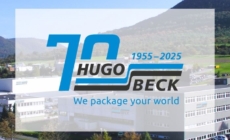-
Nutrivend selects Forterro’s Orderwise to support online expansion and streamline operations - 22 hours ago
-
ARROWXL LAUNCHES AMBITIOUS ZERO WASTE ROADMAP - April 8, 2025
-
THE BCMPA’S NEW CAMPAIGN DRIVES OUTSOURCING SUCCESS IN Q1 - April 7, 2025
-
BLACKOUT TECHNOLOGIES TARGETS TELEMATICS-INTEGRATED MOBILE DEVICE BLOCKING TO COMBAT SMARTPHONE DISTRACTION - April 1, 2025
-
OpenADR Alliance announces first OpenADR 3.0 certified products with EVoke Systems, E.ON Energy and Universal Devices - March 25, 2025
-
Growing fulfilment and contract packer appoints new Managing Director - March 25, 2025
-
When is it time to invest in a WMS? Understanding the key trigger points - March 25, 2025
-
eCapital helps Vantage Recruitment on its journey to financial success - March 24, 2025
-
Hugo Beck Celebrates 70 Years of Packaging Innovation with Open House Events - March 20, 2025
-
PROLOG FULFILMENT SUPPORTS LUNA DAILY’S COMMITMENT TO BETTER BODY CARE FOR ALL WOMEN - March 19, 2025
Peak events are becoming more extreme and increasingly frequent. Now, with the high street paralysed by Covid restrictions, consumers are turning to the Internet in even greater numbers for their Black Friday and Christmas deals. How should omni-channel retailers adapt their fulfilment strategies to cope? By Craig Whitehouse, Managing Director of Invar Integration.

This has been a difficult year for retailers and now, a perfect storm is gathering.
Much of a retailer’s annual profits are attributable to its performance leading into the Christmas period but, other seasonal peaks and special events, such as Black Friday and Cyber Monday, are gaining both in scale and frequency. Failure to execute fulfilment efficiently during these periods of intense activity can have a damaging affect on the brand, as well a negative impact on financial performance.
For a great many businesses fulfilment is a highly manual activity, with tens or even hundreds of extra staff brought in to match demand. Now, through a confluence of factors – a scarcity of labour resources following Brexit, a rise in the National Living Wage to £8.72 for employees over 25 years of age, and the constraints imposed by Covid safe working requirements – retailers are faced with complex labour issues and the prospect of processing a deluge of online orders, as consumers turn to the Internet in the wake of a high street lockdown.
According to a PWC report, “Black Friday and Cyber Monday 2020”, published in November, more consumers are bringing forward their Christmas shopping this year, with almost a third (31%) looking to buy presents over Black Friday – up from 19% in 2019. Importantly, many of those interested in Black Friday are expecting to spend more as a result of the second lockdown.
With most physical stores closed, consumers are expected to do 88% of their Black Friday shopping online this year, up from 77% in 2019.
For retailers, this is going to be a major challenge. Those that have invested in some level of automation will be better positioned to cope with the constraints on labour and the huge surge in ecommerce order volumes. Those that have not may well struggle. The exaggerated peaks of a COVID Christmas highlight the fragility of a traditional, manual approach to fulfilment. If businesses wish to compete efficiently across multiple peaks throughout the year, then a new way of thinking is required, along with clever use of intelligent automation.
There are many unknowns for retailers to consider. Will the high street bounce back strongly after Covid? Could more people work from home and favour click n’ collect? Will product profiles change, SKUs proliferate, or may consumer buying behaviour change radically?
With such uncertainty, flexibility will be imperative. Omni-channel businesses will need to create fulfilment processes that are agile, efficient and resilient, whilst taking advantage of the higher performance that the latest advanced automated systems can offer.
SMEs, in particular, have an opportunity to steal a march on larger retail organisations that may have committed to less than flexible, fixed automated systems. By adopting intelligent software and advanced mobile robot technology, SMEs can leverage the flexibility, speed and performance of goods-to-person automation as a low-CapEx project. Autonomous Mobile Robots (AMRs) offer tremendous flexibility and, importantly, scalability in traditional labour-intensive tasks such as order picking and put-away. AMR systems combined with pick-to-light technology can boost order picking performance from under 100 units per hour using traditional methods, to up to 600 picks per hour, with an ROI that can be as little as 12 months.
Mobile robots may also be used effectively to transport pallets within a warehouse, offering a more flexible alternative to fixed pallet conveyors.
Flexible technology combined with powerful, intelligent software allows for a new way of thinking. A conventional conveyor system is normally installed to an agreed throughput, usually to a projected peak figure. But this results in the asset running below capacity for the majority of the year. On the quietest day it may only handle a tenth of the volume experienced at peak. However, a solution using AMRs could be designed for 70% of peak, with additional robots brought in during peak periods. It’s this level of scalability that offers SMEs a flexible low-entry point to automation.
But robotics may be just part of a possible solution. There may be any number of processes within a warehouse that are found to be a constraint on optimum performance and there are many well-proven technologies that can be deployed – from weighing and auto volumetric sizing of goods received, conveyor runs and ASRS systems, to automated packaging machines, sortation equipment and pick-to-light technology, to name but a few.
Importantly, it is the efficient integration of these processes, technologies and intelligent software that enables fast delivery of a solution and a trouble-free future. An intelligent system, conceived by expert design engineers and implemented by competent controls and software professionals, drives productivity and offers the agility needed to respond to change.
As an independent, full-spectrum automated warehouse solutions provider, Invar Group is free to select the most appropriate technology for the task, and being a multifaceted organisation that brings together skilled individuals with competencies across warehouse management software, systems integration and controls, we take responsibility for the complete turnkey-key system from start to finish.
With fulfilment operations under increasing pressure to perform across multiple peaks, automation of key warehouse processes would appear to be the only viable or sustainable way forward. Companies have an opportunity to adopt flexible, scalable and easily adaptable low-CapEx solutions – clever systems that can flex to the changing needs of the business. It could prevent a crisis turning to disaster.
































